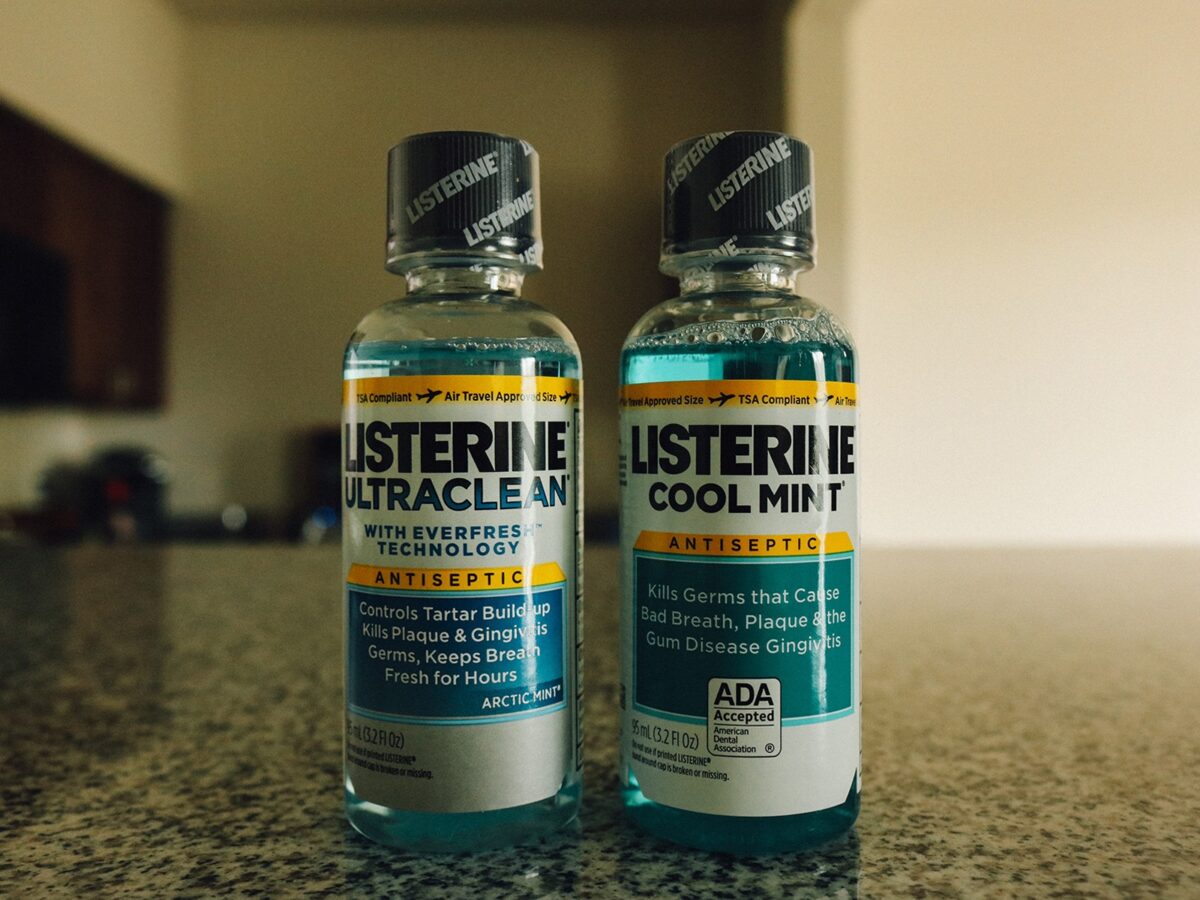Blog
Dental hygiene tips for healthy teeth & gums

Does Listerine Hurt Enamel?
Mouthwashes have gained immense popularity as an additional way of keeping the teeth clean and staying away from bad breath. The composition of all mouthwashes is different. Whether they degrade the enamel or not would depend on a variety of factors, including:
- Frequency of usage of the mouthwash
- Duration of exposure between the mouthwash and your teeth
- Chemical composition of the mouthwash
Enamel is the hardened protective layer of your teeth. With constant exposure to acidic substances, this layer can break down. Enamel degradation can make your teeth sensitive and prone to decay and cavities. Using mouthwashes may seem like a good way of maintaining your oral hygiene, but if you do not pay attention to the label of the mouthwash that you are buying, you might be in for a big surprise.
How frequently are you using it?
Commercial mouthwashes such as Listerine have an acidic pH that may cause harm to the enamel if used too frequently. It is also important that you limit the duration of contact between the mouthwash and your teeth. People who use mouthwashes two or more times daily are at a higher risk of developing tooth decay than those who do not use it.
Does it have alcohol?
Most commercially available mouthwashes are alcohol-based. While they may be an excellent way of getting a fresh breath, they may pose severe health-risks in the long-term. Some of the potential risks that excessive use of mouthwash have are:
- Reduces the amount of saliva produced
- Causes drying of the mouth
- Increases sensitivity of teeth
- Puts the teeth at risk of decaying by degrading the enamel
Disbalances the pH
While acidic mouthwashes may help in getting rid of the harmful bacteria in your mouth, they may also harm your teeth in the long run. This is why it is advised to check the pH of the mouthwash that you are using. Use mouthwashes with a pH lower than 5.5 to ensure that your enamel is not put at risk.
Key takeaways
Listerine does not have the intensity to harm your enamel with limited use. You can use this mouthwash occasionally to improve your oral hygiene. It is better to consult your dentist before using any product that could potentially be a risk to your oral health.
Some of the key points to remember for maintaining your oral hygiene are-
- Make sure that the mouthwash is free of alcohol.
- Limit the usage of the mouthwash.
- Consult your dentist on which mouthwash to use.
- Brush and floss daily to keep your teeth safe.
- Go through the composition of the mouthwash and make sure that it has an alkaline pH.
If you wish to ensure that your enamel is safe and secure, you should routinely visit your dentist. A dentist can prescribe you mouthwashes that are safe for usage. It is essential that you routinely get your teeth checked to find out if they are being properly cleaned and are not at risk of permanent damage.
Book Appointment to find out which treatment might be best for you.


